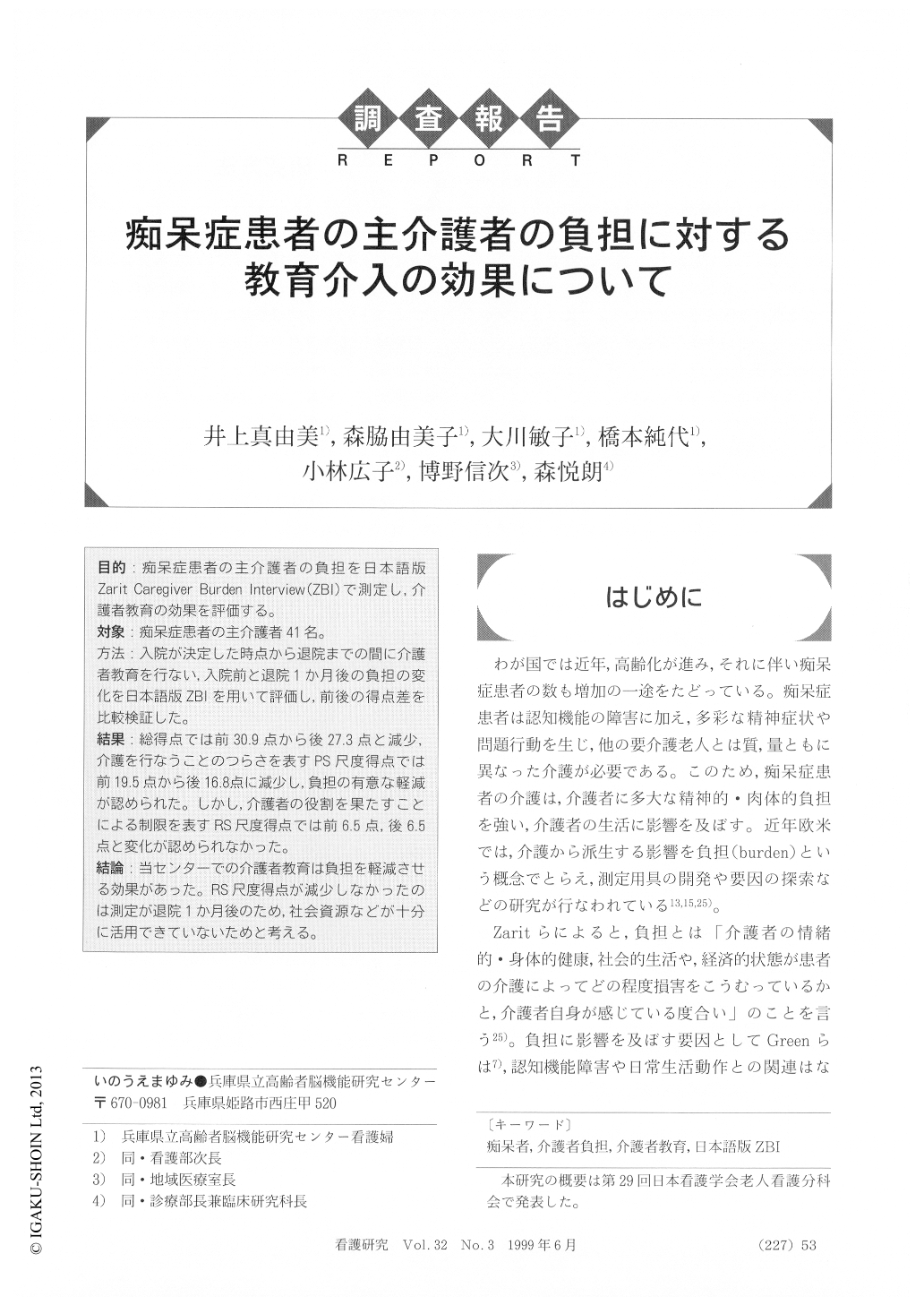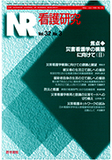Japanese
English
- 有料閲覧
- Abstract 文献概要
- 1ページ目 Look Inside
- サイト内被引用 Cited by
目的:痴呆症患者の主介護者の負担を日本語版Zarit Caregiver Burden Interview(ZBI)で測定し,介護者教育の効果を評価する。
対象:痴呆症患者の主介護者41名。
方法:入院が決定した時点から退院までの間に介護者教育を行ない,入院前と退院1か月後の負担の変化を日本語版ZBIを用いて評価し,前後の得点差を比較検証した。
結果:総得点では前30.9点から後27.3点と減少,介護を行なうことのつらさを表すPS尺度得点では前19.5点から後16.8点に減少し,負担の有意な軽減が認められた。しかし,介護者の役割を果たすことによる制限を表すRS尺度得点では前6.5点,後6.5点と変化が認められなかった。
結論:当センターでの介護者教育は負担を軽減させる効果があった。RS尺度得点が減少しなかったのは測定が退院1か月後のため,社会資源などが十分に活用できていないためと考える。
Background and Purpose: Caring for individuals with dementia poses a significant caregiver burden. Caregiver burden is associated with negative outcomes. Studies in Europe and North America have indicated that caregiver education effectively decreases the burden experienced by the caregivers of dementia patients, in Japan, however, no study has been carried out. We studied the effects of systematic caregiver education to the caregiver burden in dementia patients.
Subjects and Methods: Subjects were 41 dementia patients who were given a short-term admission in our hospital for evaluaion and their principal caregivers. Diagnosis was made through extensive examinations including MRI and PET/SPECT of the brain. The patients included 27 women and 14 men; the mean age was 72.8±6.8 (SD) years. They included Alzheimer's disease (n=28), frontotemporal dementia (n=1), vascular dementia (n=8), corticobasal degeneration (n=1), dementia with Lewy bodies (n=2), and mitochondrial encephalopathy (n=1). The caregivers included the patients' spouses (n=21), offsprings (n=5), and off-spring's spouses (n=15). During the admission, all subjects received a comprehensive medical intervention and education of caregivers. A systematic educational program for caregivers of dementia includes informing nature and prognosis of the illness, teaching effective management strategies for behavior problems and functional disabilities, and providing information about resources available in their community such as home care, day care, and respite services. Trained nurses interviewed a principal caregiver of each patient by using a Japanese version of the Zarit Caregiver Burden Interview (ZBI) before entering the program and at follow-up (one month after the accomplishment of the program and discharge).
Results: The mean total ZBI and Personal Strain (PS) scores decreased significantly at follow-up (Total score: before = 30.9±12.7, after = 27.3±13.0, p = 0.005; PS score: before = 19.5±7.8, after = 16.8±7.5, p = 0.002). However, the mean Role Strain (RS) score did not significantly change (before: 6.5±5.1, after: 6.5±5.3). Even after excluding the seven patients who received medications for their behavior problems, the results remained unchanged.
Conclusions: These findings suggest systematic education of caregivers of dementia patients may lessen caregiver burden. Further studies are necessary to find the interventions which can decrease RS factor of caregiver burden.

Copyright © 1999, Igaku-Shoin Ltd. All rights reserved.


